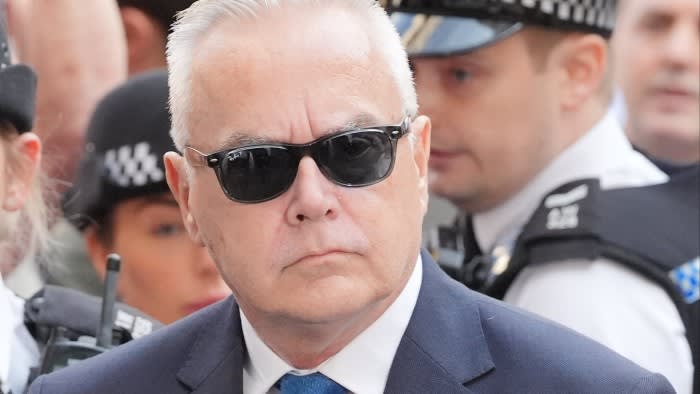Unlock the Editor’s Digest for free
Roula Khalaf, Editor of the FT, selects her favourite stories in this weekly newsletter.
The BBC will attempt to claw back the hundreds of thousands of pounds in salary paid to former star presenter Huw Edwards since his arrest in November last year, it said on Friday.
Edwards, who had been the BBC’s best paid news reader with an annual salary of about £475,000, last month pleaded guilty to accessing indecent images of children.
The BBC was aware Huw Edwards had been arrested on suspicion of serious offences and continued employing him for five months, although it said it did not know the full details of the allegations. Edwards was charged on June 26.
On Friday, the BBC board said that it had “authorised” the broadcaster’s management to claw back salary paid to Edwards from the time of his arrest. It said that Edwards had “pleaded guilty to an appalling crime. Had he been up front when asked by the BBC about his arrest, we would never have continued to pay him public money”.
The board, whose job it is to scrutinise the management of the national broadcaster, added that Edwards “has clearly undermined trust in the BBC and brought us into disrepute”.
The 62-year-old had been the face of much of the BBC’s most prestigious coverage of events, including the state funeral of Queen Elizabeth II, as well as the main presenter of the flagship BBC News at Ten programme.
It is not clear how easy it will be to demand repayment of the money from Edwards, who was on medical leave for much of the year and eventually quit in April almost a year after initial allegations that he paid for sexually explicit images.
The board said that it had met a number of times over the past week to review information provided by director-general Tim Davie and his executive team relating to Huw Edwards.
It supported the decisions taken by Davie, saying that these were based on a range of factors including the BBC’s legal and contractual obligations, the knowledge the broadcaster had at the time, concerns over its duty of care to Edwards, and “due regard for the accountability that the BBC has for public money”.
But it added that the management had now agreed to look at the BBC’s approach to rules about payments when employees were suspended. It also said the scandal had “put a spotlight on the question of power imbalances in the workplace”, and commissioned an independent review to strengthen the workplace culture in the BBC.
Culture secretary Lisa Nandy, who had called for Edwards’s salary to be returned, said: “Public trust in the BBC is essential, and so I welcome the BBC’s decision to launch an independent review into the culture within the organisation following the Huw Edwards case and his abhorrent actions.”


